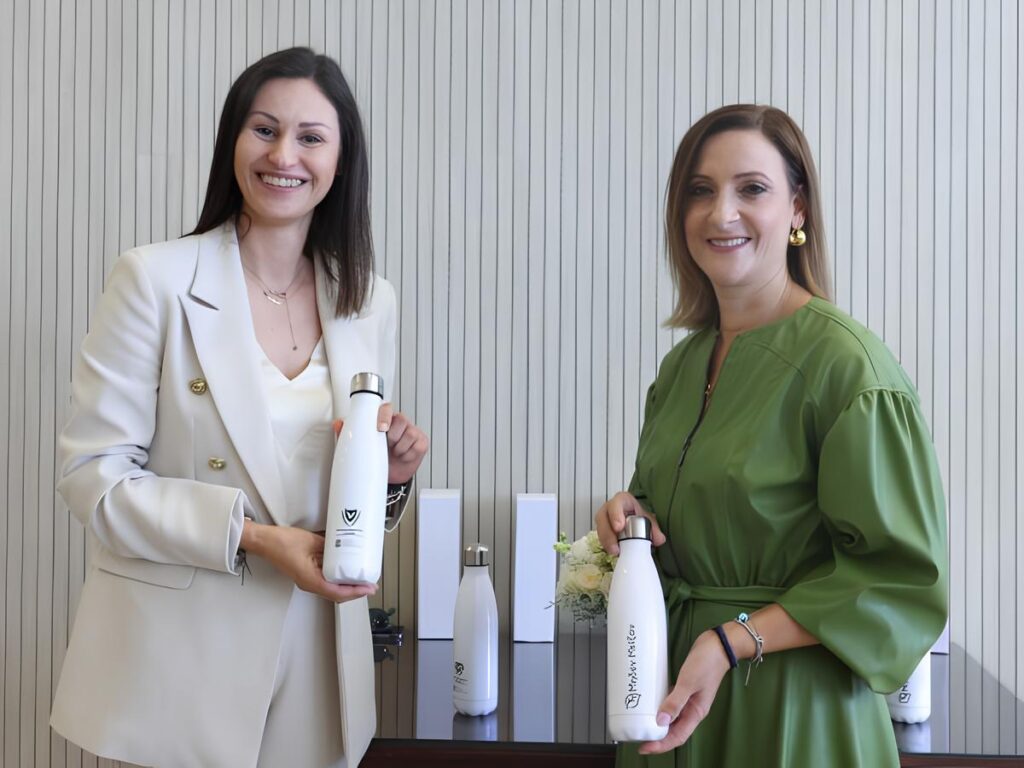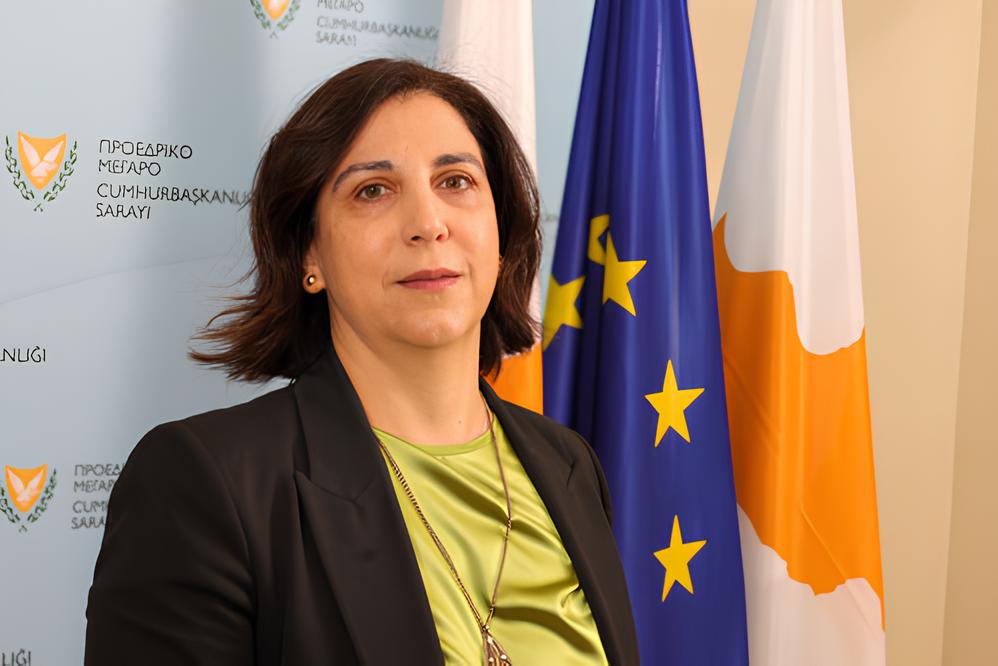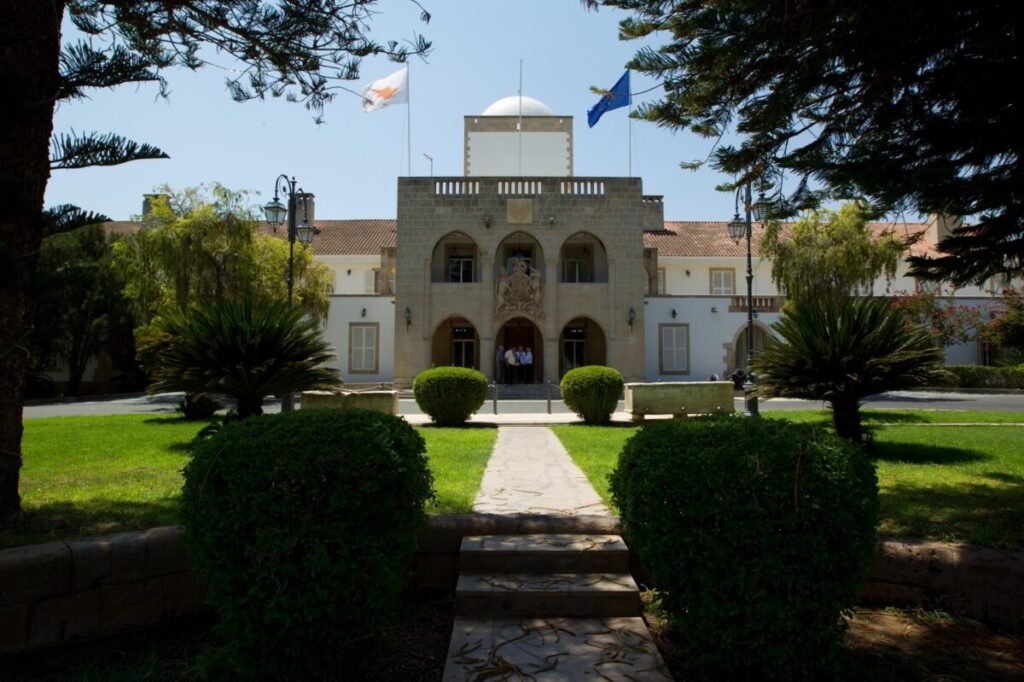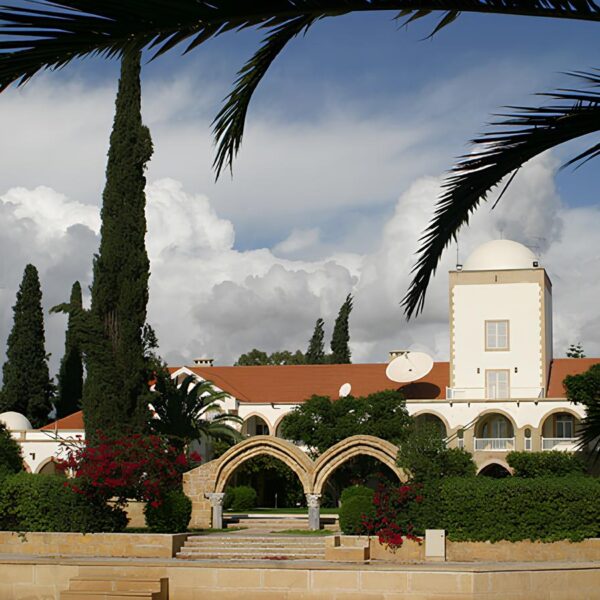On a hill, in the heart of the capital Nicosia, the presidential palace has recently become the country's first zero waste government building, receiving the "Zero Waste to Landfill" certification. The goal was achieved through a series of significant actions initiated by the First Lady, Philippa Karsera Christodoulides and the Minister of Agriculture, Maria Panayiotou. Now a model of environmental responsibility, the Palace aims to pave the way for other government buildings.
Achieving this ambitious goal has not been an easy task as urban waste increases and, according to Eurostat, Cyprus lags behind in recycling. The collective action led by the Palace employees, the President, and his family, consisting of new "green" habits and sustainable practices, has brought about significant changes in environmental protection.
A goal turned into reality
It started with small steps, like canceling the contract for bottled water. Bottles that had been distributed for free to all employees of the Presidential Palace for years. "We have removed them and provided all employees with reusable water bottles, to minimize single-use materials. We have created an 'environmental corner' with recycling bins for all waste and compost bins. We also organize educational seminars for staff to promote proper environmental practices," explains the Deputy Minister to the President. Irene Piki further emphasizes: "We have achieved our goal of making the Presidential Palace an example of respect and protection of the environment, capable of inspiring other public entities."

With the transition to "Zero Waste to Landfills", all waste streams are now being monitored. This ensures that they do not end up in landfills, but are instead reused or recycled in approved facilities.
Et Irini Piki further specifies: "The Presidential Palace is now an example of ecology. This has been made possible because we have managed our waste to over 95%, so that it does not end up in landfills. More specifically, 100% of organic waste is collected and processed in the compost bin of the Presidential Palace, 100% of solid waste such as paper, plastic (PMD), glass, etc., are collected by approved managers for recycling and proper management, and 100% of hazardous waste, such as batteries, are handled by approved organizations following validated procedures."
Changing habits is essential
The Presidential Palace aims to train other government buildings such as ministries and public services. And thus involve thousands of employees in this new path. "The most important action was to change the employees' habits. Daily life has clearly changed. Along the way, everyone realized that these disruptions made the space in which we work even more enjoyable. Despite some initial reservations, today we can say that our perseverance and patience have paid off. What we do through the Zero Waste program is innovation for us, and this is due to our culture. Environmental responsibility in our actions is a very important step towards the change we desire", highlights Mrs. Pikis.

Protecting the environment is the highest priority
According to her, these initiatives are just the beginning. "Our future goals are to install an intelligent irrigation system. To transform the Presidential Garden into a social, smart, and organic farm. And to build the largest non-industrial composter in Cyprus where we will place our large waste. Additionally, we plan to create a public urban park, showcasing Cyprus's endemic plants, with the aim of raising awareness about the importance of their protection. These initiatives are not the end, but the beginning of a comprehensive effort that prioritizes environmental protection as an absolute priority, for us and for our children."
In 2017, an Environmental Management System was developed and implemented in Cyprus, based on the guidelines of the European Regulation - EMAS. Every year, the Environmental Management System is inspected and certified by the Cyprus Certification Company.

Cover Photo: The garden of the Presidential Palace @PIOcy
